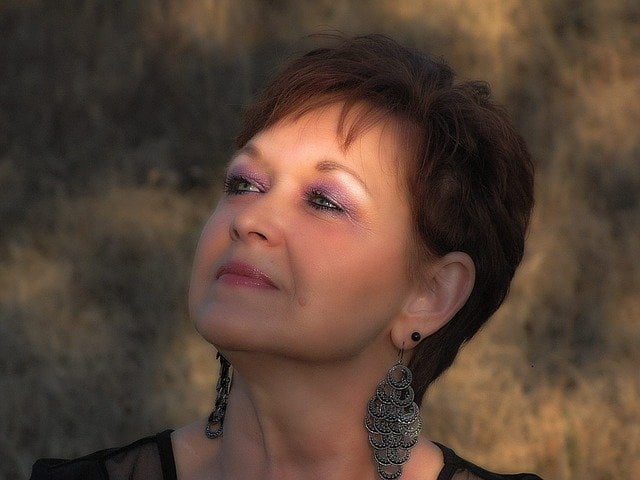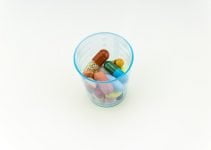
While there are women who seem to get pregnant easily, there are those who find it hard to conceive a child. However, these observations should not keep a woman from trying to have a baby.
It is still possible to have children even if a woman is in her early 40s. According to experts, it is when you reach 45 when it becomes challenging to have a baby the natural way. However, some women gave birth beyond this age.
Although there are risks involved in getting pregnant when a woman gets older, such as pre-eclampsia, eclampsia, gestational diabetes and miscarriage, some women do have healthy babies. But, what if she is in the menopausal stage?
Is it still possible for her to conceive and carry a baby in her womb? And if she becomes pregnant and suddenly experiences the onset of menopause, will she still be able to carry the baby to full term? First, let us talk about menopause.
What is menopause?
Menopause is regarded as an age of transition in women in which she ceases to experience menstruation. This is a normal condition and usually takes place for years. But when a woman is reaching menopause, she will have irregular periods or her menstrual cycle will be erratic.
It can also be described as the changes women go through before and after she finally stops to menstruate. After a year of not having a monthly period at all, this is what can be officially called menopause. It is also considered the end of a woman’s reproductive period.
Can a woman still get pregnant when she reaches her menopausal stage?
Menopause has three stages as well as symptoms surrounding this condition. That said, it is still possible to get pregnant during menopause, but not after. Unless, of course, if it is not through the traditional way, via IVF or in vitro fertilization.
Moreover, there are potential risks for getting pregnant when a woman becomes older.
When a young girl gets her first menses, around 12 years old, this is the start of her reproductive age. However, the fertility of women also depends on their age. It is during a woman’s reproductive years when she produces four kinds of hormones.
- Luteinizing Hormone (LH)
- Follicle Stimulating Hormone (FSH)
- Estrogen
- Progesterone
These hormones are significant for ovulation. FSH causes growth and maturity of follicles, which start producing estrogen in response to stimulation, and LH surge induces release of ovum from that griffin follicle which turns into luteal tissue after rupturing and releasing ovum. This will continue to secrete progesterone for 14-16 days in absence of fertilization or upto 8 weeks of pregnancy.
But as a woman advances in age, the number of her eggs decline, and as she nears menopause or reaches the ages between 40 and 45, there will be lesser eggs available to release. Moreover, the levels of her hormones fall. After some time, her ovaries will cease to produce eggs.
But so long as the process is not finished, there is still a chance to get pregnant. And if she indeed gets pregnant and then completes the process, she can still carry her baby to term.
Stages of Menopause
Peri-menopause
This is the earliest part of the menopausal period in which symptoms are seen and felt by a woman. It is defined as “around menopause” and referred to as the “menopause transitional phase” This happens years before menopause, around eight to 10 years before the onset of menopause. This was according to the Cleveland Clinic.
It is also during this period when the LH and FSH levels rise. Conversely, the level of estrogen drops and during this stage, it can increase or decrease as well. As a woman reaches the end of peri-menopause, less and less estrogen will be produced.
But since there is still production that can last for around four years, there is still a possibility of getting pregnant. Once the estrogen level is low, it will be harder to release eggs. This is also the reason behind the difficulty of conceiving as a woman ages.
Some of the signs include:
- Weight Gain
- Hot Flashes
- Irritability
- Depression
- Headaches
- Night Sweats
- Irregular Menstruation
- Vaginal Dryness
- Changes in Mood
- Dry Skin
- Breast Tenderness
Menopause
This is the period when a woman’s monthly period comes to a complete stop for about a year. During this stage, she will no longer be able to produce eggs.
Consequently, she will not be able to ovulate and get pregnant. While the age of reaching menopause varies, it can happen between the ages of 40 and 50.
Post-menopause
This is the time after menopause has been confirmed and the years after menopause. While the symptoms felt during menopause may lessen, this is also the period where women become prone to medical conditions such as heart disease and osteoporosis resulting from lesser levels of hormones.
Having a Baby After Menopause
One option to get pregnant after menopause is through in vitro fertilization. In this method, eggs are fertilized in a laboratory and then implanted in the uterus of a woman or another woman who will be the surrogate mother.
Hormone replacement therapy can be done to prepare a woman’s body for implantation and to be able to maintain pregnancy. In this process, the eggs used can come from an egg donor. It can also be the eggs of the post-menopausal mother that have been harvested years before and frozen.
Is menopause reversal possible?
There are on-going studies conducted by researchers about reversing menopause. While there have been attempts to stimulate the ovaries in peri-menopausal women and positive results as well, these are temporary.
But there was also a study on 27 post-menopausal women who were given platelet-rich plasma (PRP) which contains cytokines, hormones, and growth factors. Of the 27 women, 11 menstruated within three months. Moreover, two women ovulated and from these two, one succeeded to have IVF.




COULD A WOMAN GOING THROUGH MENOPAUSE FEEL LIKE SHE’S OVULATING?
Hello Denise, the below link will help you: https://womanjunction.com/signs-of-menopause/